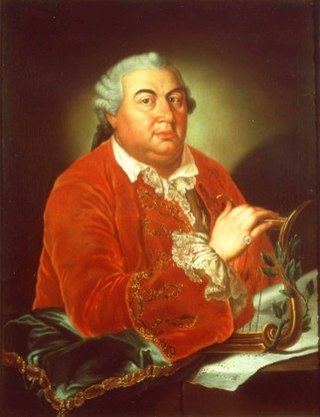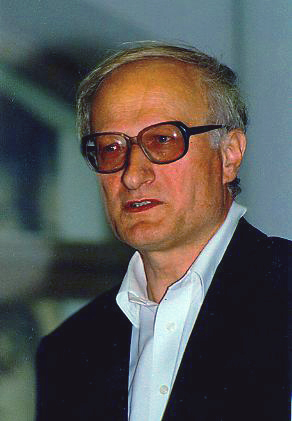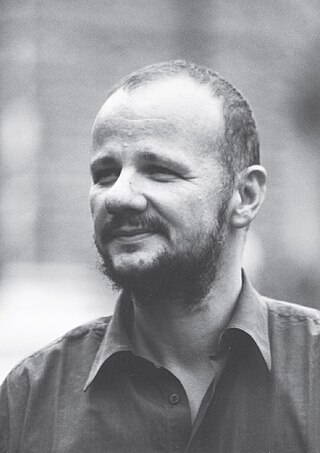
Joseph Aloys Schmittbaur (also Schmittbauer; 8 November 1718 - 24 October 1809) was a German composer, Kapellmeister, instrument maker and music teacher.

Joseph Aloys Schmittbaur (also Schmittbauer; 8 November 1718 - 24 October 1809) was a German composer, Kapellmeister, instrument maker and music teacher.
Joseph Aloys Schmittbaur was born in Bamberg and received his musical education from the organ builder of the Würzburg court Johann Philipp Seuffert. He was also a pupil of Niccolò Jommelli, probably in Bologna. Around 1750 he was employed in the court of Rastatt, where he became concertmaster in 1759 and Kapellmeister in 1766. During this time he set German and Italian works for the stage. After the dissolution of Rastatt chapel in 1771, he became concertmaster of the Badische Staatskapelle in Karlsruhe. In January 1775, Schmittbaur was given the position of Kapellmeister of Cologne Cathedral, where he was deeply influenced by the conservative musical activities of the musical academies. Two years later, upon the death of Giacinto Sciatti in 1777, he returned to Karlsruhe to become Kapellmeister. He retired from his duties as Kapellmeister in 1804, leaving his place at the court to his son, Ludwig Joseph Abbe (1755-1829), a composer of Lieder. Three other children of his were musicians: August (b. 1763) was a clarinetist and flutist, Nepomuk was a violinist active near Karlsruhe, and Therese was a singer and keyboard player.
Christian Friedrich Daniel Schubart commented on Schmittbaur that: "He is one of the finest composers of our land, and we only now see what the world long ago had in him." [1]
Schmittbaur was in demand as an organ expert, he also produced replicas of the glass harmonica that Benjamin Franklin had invented in 1762 and improved on them, including one for one of his most famous pupils, the blind Marianne Kirchgessner.
Despite the fact that his works were preclassical in style, he was highly regarded as a composer in the 1780s, especially for his symphonies that follow the model of Mannheim school.
Schmittbaur composed masses, cantatas, symphonies, string quartets, flute quartets, and other chamber music. He also wrote stage works.
His first opera was the serenade L'isola disabitata, which reflects the influence of Niccolò Jommelli, who was active since 1753 in Stuttgart. His theatrical works of the 1770s reflect the influence of Gluck's reform opera.
Among his instrumental compositions, most noted are his chamber works, such as the six quartets for flute and strings, which in the past were erroneously attributed to Joseph Haydn.

Niccolò Jommelli was an Italian composer of the Neapolitan School. Along with other composers mainly in the Holy Roman Empire and France, he was responsible for certain operatic reforms including reducing ornateness of style and the primacy of star singers somewhat.

Carl Ditters von Dittersdorf was an Austrian composer, violinist, and silvologist. He was a friend of both Haydn and Mozart. His best-known works include the German Singspiele Doktor und Apotheker and a number of programmatic symphonies based on Ovid's Metamorphoses.

Georg Christoph Wagenseil was an Austrian composer.
John Harris Harbison is an American composer, known for his symphonies, operas, and large choral works.
Ignaz Jakob Holzbauer was an Austrian composer of symphonies, concertos, operas, and chamber music, and a member of the Mannheim school. His aesthetic style is in line with that of the Sturm und Drang "movement" of German art and literature.
Boris Alexandrovich Tchaikovsky, PAU, was a Soviet and Russian composer, born in Moscow, whose oeuvre includes orchestral works, chamber music and film music. He is considered as part of the second generation of Russian composers, following in the steps of Pyotr Ilyich Tchaikovsky and especially Mussorgsky.
Arnold Atkinson Cooke was a British composer, a pupil of Paul Hindemith. He wrote a considerable amount of chamber music, including five string quartets and many instrumental sonatas, much of which is only now becoming accessible through modern recordings. Cooke also composed two operas, six symphonies and several concertos.

Anton Franz Josef Eberl was an Austrian composer, teacher and pianist of the Classical period. He was a student of Salieri and Mozart. He was also seen as an early friend and rival of Beethoven.

Krzysztof Meyer is a Polish composer, pianist, and music scholar, formerly dean of the Department of Music Theory (1972–1975) at the State College of Music, and president of the Union of Polish Composers (1985–1989). Meyer was professor of composition at the Hochschule für Musik in Cologne from 1987 to 2008, before his retirement.
Zdeněk Lukáš was a Czech composer. He authored over 330 works.
Arnold Rosner was an American composer of classical music.

Emil Hlobil was a Czech composer and music professor based in Prague.

Gerhard Schedl was an Austrian composer.
Joseph Touchemoulin was a French violinist and composer of the classical period who mainly worked in Bonn and Regensburg.